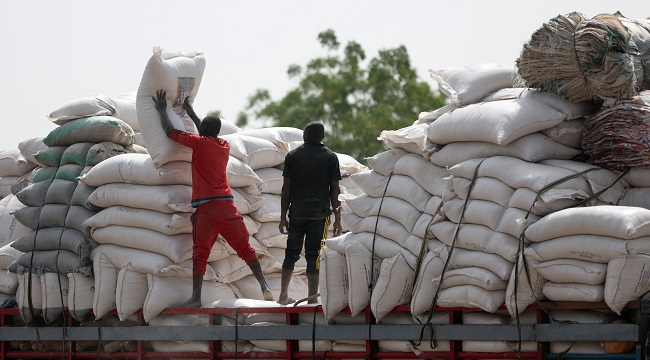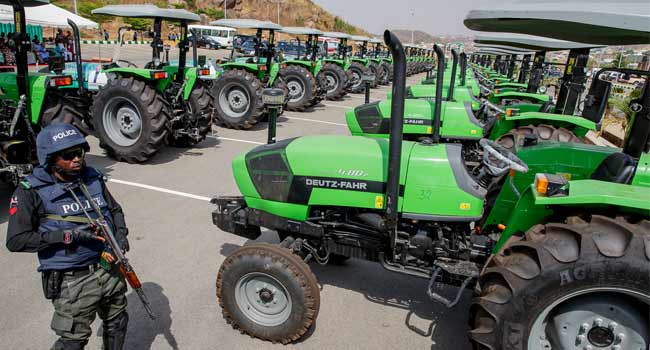Former President Muhammadu Buhari’s Special Adviser on Agriculture, Dolapo Bright, claimed that his advisers had misled him by saying that the lifting of duties, tariffs, and taxes on the importation of food staples across land and sea borders would lower inflation.
Bright was a guest on Sunday’s edition of Inside Sources with Laolu Akande, a socio-political programme aired on Channels Television. He claimed that the price of commodities has been severely affected by the rising costs of diesel and gasoline, which are essential for the transportation of food items.
He said, “I don’t think it happened. The person who advised the government to do that, the person is clueless, if you understand what is happening, you won’t give such advice. The person is misleading the president. Do you know why? Let’s assume that you are going to import. Lagos will be the port of importation. Do you intend to transport the item somewhere else? It doesn’t make sense because that is going to make our agriculture stagnant”.
READ ALSO: 33 Million Nigerians May Face Food Insecurity In 2025 — Report

As Nigerians battle what might pass for the worst cost of living crisis since the country’s independence over the past 60 years, food and commodity inflation has skyrocketed.
Nigeria’s inflation rate was 22.41% when Tinubu took the oath of office in May 2023, according to official figures released by the National Bureau of Statistics (NBS). Economic wizards have attributed Tinubu’s twin policies, which included the elimination of the gasoline subsidy and the unification of the forex rates, to a astronomical rise in inflation rate of 34.6% in November 2024, or more than 12% higher.
Significantly, the food inflation rate in November 2024 was 39.93% on a year-on-year basis, from 32.84% recorded in November 2023. The rise in food inflation is attributed to the rate of increase in the average prices of fish, rice, yam flour, millet whole grain, corn flour, egg, milk, milk, frozen chicken, among others.
The Tinubu administration announced the suspension of customs duties in July 2024 to stop food inflation, but it has reportedly failed to gain public approval as a result of bureaucratic bottlenecks.
Bright, who served as Buhari’s agricultural adviser from 2015 to 2023, claimed that the government is partially to blame for inflation because it tries to control agriculture while allowing the private sector to do so.
If the right conditions are met, farmers won’t necessarily need the government’s assistance, he said.
He claimed that high input costs are causing many farmers to not be able to produce the amount they were able to before, blaming diesel and gasoline prices, which he claimed had a significant impact on harvests.
READ ALSO:  , World Bank Earmarks $50m To Support Nigeria’s Food Nutrition Challenges
“Tractors Can’t Solve Output Shortages”

On December 23, 2024, during his maiden chat, Tinubu said he has “over 2, 000 tractors coming into this country for mechanised farming” to make farming sexier.
However, Bright said tractors only won’t solve the food shortage problem in Nigeria. He argued that locals create jobs by employing local labor, and that over 80% of farmers in Nigeria practice subsistence farming.
The former presidential aide said, “When I heard about tractors and all those things, I laughed. It is not being received by the government. Tractors won’t solve our problem. What is the purpose of mechanized farming?
We don’t have sovereignty over the seeds because we have poor input and poor seed, and almost all of the seeds we use in Nigeria are imported. We will use tractors because we have all of these issues.
“At the end of the day, what are we going to get? We are going to get peanuts. It is going to be very far from the potential. No one will be able to provide the maintenance, which will cause more issues for us. Smallholder farmers can afford bank loans to use tractors for mechanized farming, but corporate farmers can afford bank loans.
The former presidential adviser claimed that Nigeria cannot afford to be a major food producer because it indirectly feeds neighboring nations like Benin, Burkinabe, and others.
Leave a Reply